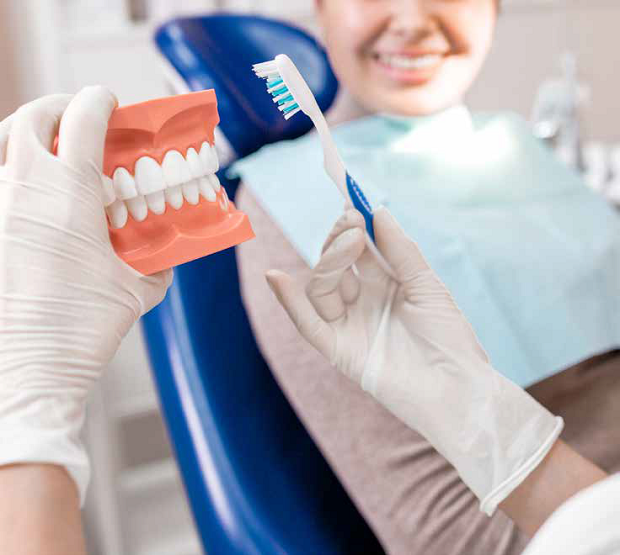SingHealth Institutions will NEVER ask you to transfer money over a call. If in doubt, call the 24/7 ScamShield helpline at 1799, or visit the ScamShield website at www.scamshield.gov.sg.
Maintaining healthy teeth and gums

Thirty-one per cent of Singaporeans aged 60 and above have lost all of their teeth, according to a 2016 survey conducted by the National Dental Centre Singapore (NDCS) and Centre for Ageing Research and Education at Duke-NUS Medical School.
Tooth loss can occur due to long-term dental neglect and severe dental diseases, which are preventable with regular dental care. Dr Wu Siwen, Consultant, Endodontics, Department of Restorative Dentistry, NDCS, said that dental caries, commonly known as tooth decay, and periodontal (gum) disease are among the most common dental diseases seen in Singapore.
Dental caries can affect people of all age groups while gum disease is generally more common in the elderly, she added.
Increased risks
Besides poor oral hygiene and dental neglect, certain lifestyle habits and medical conditions can also heighten the risk of developing dental diseases.
For instance, people who consume excessive sugary or acidic foods, and snack frequently between meals are more prone to developing tooth decay.
A dry mouth can also increase the risk of tooth decay. Medical conditions such as Sjogren’s syndrome, radiation therapy for treatment of head and neck cancers, and medications that affect saliva flow can result in dry mouths, said Dr Wu.

<<With long-term diligent care, tooth loss and dental problems are not an inevitable part of ageing, said Dr Wu Siwen.>>
“People who smoke or have poorly controlled diabetes tend to experience more severe gum diseases, with more rapid destruction of the gums and supporting bone. Both smoking and uncontrolled diabetes can affect the body’s natural immune response to fight bacterial accumulation under the gums, as well as slow the healing process after gum treatment,” she said.
Lack of understanding
Having misconceptions about dental health is one of the reasons why some people neglect their teeth and gums. For example, some elderly may think that tooth loss is an inevitable part of ageing, but that is far from the truth.
“It is possible for an elderly person who has diligently cared for his or her oral health to have no dental issues and retain a full set of healthy teeth,” said Dr Wu.
While dental diseases may be more prevalent and severe with age, paying attention to oral hygiene and regular monitoring of dental conditions can ensure good long-term oral health.
Maintaining healthy teeth and gums is a long-term commitment that starts with good personal oral hygiene habits. This involves brushing teeth twice a day, with a focus on removing plaque at the gum line and between the teeth.
“Sugars in foods and drinks are a source of food for bacteria in the mouth. When a person snacks frequently between meals, bacteria in the mouth feeds on the supply of food to produce acids that attack the tooth enamel, or the hard outer surface layer of the teeth. Saliva slows down the decay process and allows remineralisation (repair) to occur and so, it is important to allow time for the saliva to neutralise the acids. Avoid taking sugary or acidic snacks in between main meals as far as possible,” said Dr Wu.
Go for check-ups
Regular visits to the dentist — at least twice a year — for a thorough check-up and professional cleaning ensure that any dental problems will be detected early and necessary intervention can be done to prevent further deterioration.
For patients with uncontrolled diabetes, they should work closely with their healthcare team to manage their condition.
When undergoing dental check-ups or procedures, diabetic patients should take their prescribed medications as advised by their physician and update their dentist on changes in drugs or dosages, said Dr Wu. It is also important for them to have a meal prior to a dental visit to prevent hypoglycaemia (low blood sugar).
Keep Healthy With
© 2025 SingHealth Group. All Rights Reserved.



















